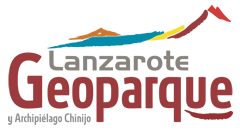In order to understand the current state of the subject (combining geology and astrobiology), it is important to describe some basic concepts about the situation of analogs in planetary exploration, including related proposals.
The planetary geology is and officially known topic in the internationally context of fields, disciplines and scientific sub-disciplines of UNESCO, whose revision and rearrangement was recently proposed (Martínez Frías and Hochberg, 2007, Inter. Sci. Rev. 32-4: 315-319). According to these authors, as most studies and research topics on planetary geology mainly involve geologists, within field 25 of the UNESCO “Earth and Space Sciences”, it has been suggested that it would be very appropriate to appoint a new additional code, UNESCO (2512.04) for planetary geology (with crossed references: 2104.04 and 2512.04). This will favour a more suitable situation for the real position of this profession, coherent with the research conducted by this group. Although there is no specific and standard definition of planetary geology, also called astrogeology (term first suggested by Eugene Shoemaker in 1961, seen internationally as the founder of the discipline), one of the best corresponds to the one used by the Arizona State University, an emblematic and pioneer in this line of research.
Planetary geology can be described as the study of different scales of origin, composition, distribution and evolution of condensed matter in the universe, like planets, satellites, comets, asteroids and particles of different sizes and origins. This implies the inclusion of data and a detailed study of the space probe compared to meteorites and cosmic dust, structures and meteoritical impact, meteoritical, lab simulations of planetary processes, as well as field studies related to terrestrial analogs useful to explore and represent the mechanisms and planetary processes in addition to field studies of useful terrestrial analogs, useful to explore and represent the mechanisms and geological processes that take place outside the frontiers of our planet. (Martínez-Frías, 2008).
Main scientific contributions generated to date that correspond with the following studies in national and international congresses:
- Martínez-Frías, J., Mateo Mederos, MªE & Lunar, R. (2016) Los geoparques como áreas de investigación, geoeducación y geoética en geociencias planetarias: el geoparque de Lanzarote y Archipiélago Chinijo. IX Congreso Geológico de España, Huelva, 12-14 septiembre de 2016.
- Martínez Frías, J. (2016) Geoeducation and geoethics: two crucial disciplines for Sustainable Earth. Sustainable Earth 2016, Plymouth (UK), 23-24 Junio 2016.
- Martínez-Frías, J. Lalla, E., Rull, F., Gamsjaeger, M., Rodríguez-Losada, J.A., Mateo Mederos, MªE., Mogessie, A., Lunar, R. & Medina, J. (2016) Planetary and astrobiological significance of Canary Islands (Spain): review, state-of-the-art and future developments. 35th International Geological Congress, Cape Town, South Africa 27 Aug-4 Sept.
- Martínez-Frías & Mateo Mederos, Mª E. (2016) Mars-related routes in the Lanzarote and Chinijo Island Global UNESCO Geopark. 7th International Conference on UNESCO Global Geoparks, English Riviera UNESCO Global geopark (UK), 27th – 30th Sept. 2016.
- Marte en la Tierra: los científicos estudian Lanzarote para comprender el planeta rojo: http://www.diariodelanzarote.
com/noticia/marte-en-la- tierra-los-cient%C3%ADficos- estudian-lanzarote-para- comprender-el-planeta-rojo - Rutas marcianas por los volcanes de Lanzarote: http://www.ucm.es/rutas-
marcianas-por-los-volcanes-de- lanzarote - Guía didáctica : “Lanzarote: Marte en la Tierra”
